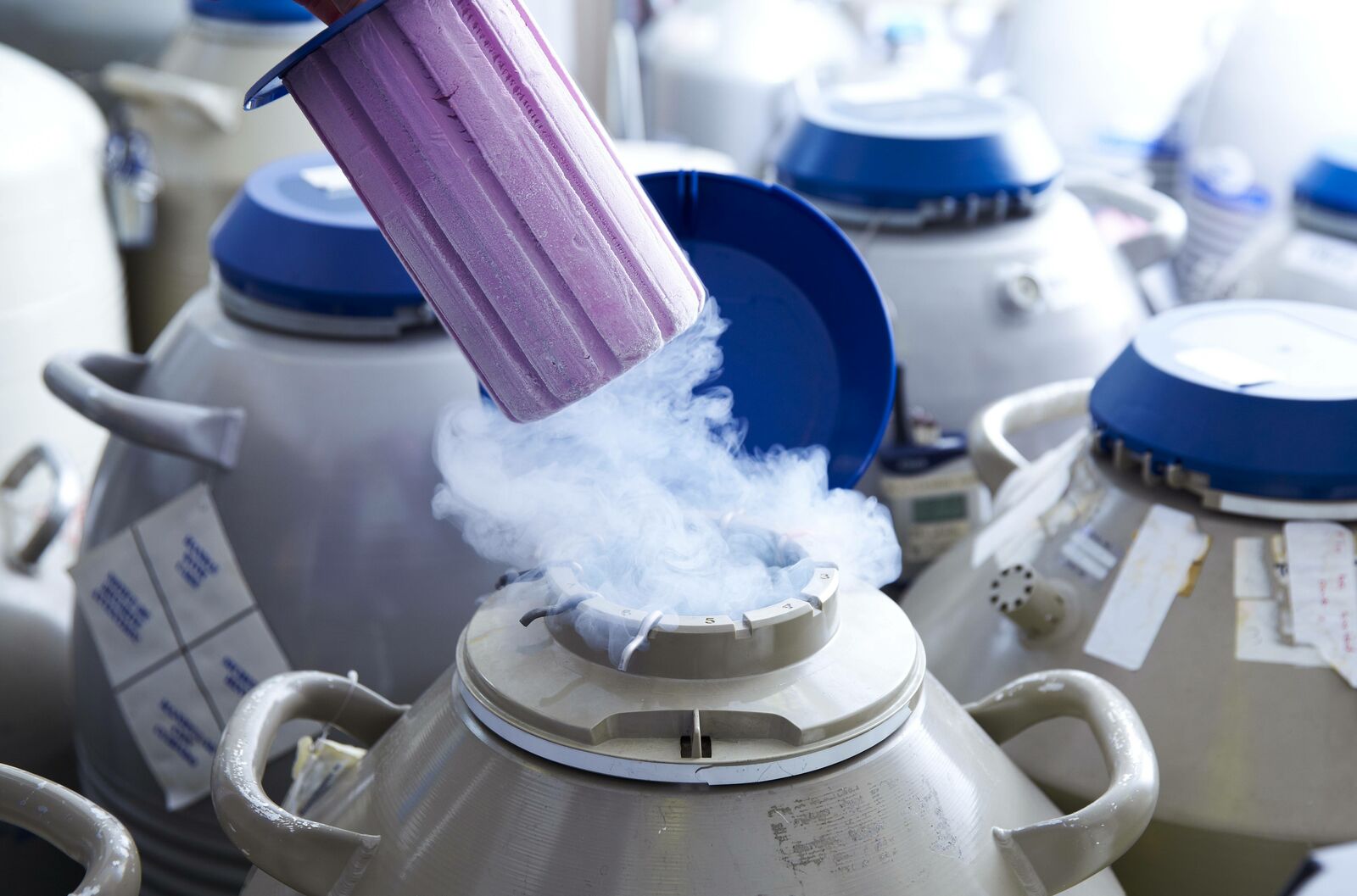
Fertility Wellness

A Whole Health Approach to Treatment
Your overall wellbeing has an impact on your ability to conceive. To help ensure a healthy pregnancy during fertility treatments, many patients complement medical treatment with other therapies to improve treatment outcome. These may include physical and emotional wellbeing therapies, as well as genetic insights. All of these approaches are designed to help you achieve harmony with your reproductive system and put your body and mind at ease during the fertility process.
Select a Wellness Service
Acupuncture for Fertility
Many of our patients add acupuncture to their treatment plan at our fertility clinic, to help ease stress and anxiety. Acupuncture has also been shown to be effective in treating a variety of concerns associated with fertility treatment and pregnancy, including: gynecological and fertility disorders, discomfort during ART (assisted reproductive technology) procedures, side effects of fertility drugs and morning sickness.
Emotional Health Counseling for Fertility
When embarking on your fertility journey, caring for your emotional and psychological needs is just as important as addressing your physical needs. Our partner counselors can be an invaluable part of your journey. They are here to listen, provide support and give you the tools necessary to deal with each phase of your treatment. Counseling services at Heartland Fertility are standard practice in accordance with CFAS and ASRM guidelines.
Daniel Fukushima-Dyal BA, MMFT
Tel: (204) 782-1868
Sarah Picken BA, MMFT
Sacred Healing
2C- 2020 Portage Ave
Tel: (204) 797-2104
We also provide emotional health resources and support to both patients and staff to help build emotional resilience for a health mind, body and life. All Heartland Fertility patients receive complimentary, unlimited access to emotional health courses and resources through Organic Conceptions.
Genetic Insights of Your Baby
With modern technology, many genetic disorders can now be traced by performing a blood karyotype test. During your fertility journey, you may want to further check on the wellness of your baby by performing this test to study chromosomes to detect abnormalities.
Indications for Chromosome Analysis are wide-ranging:
In the Fetus:
Abnormal prenatal screening test
Advanced maternal age (AMA)
Abnormal ultrasound results
In the Newborn:
Dysmorphic syndrome, congenital malformation, psychomotor delay
During Childhood or Adolescence:
Congenital malformation
Developmental delay or mental retardation
In Adulthood:
Infertility workup, premature menopause, primary amenorrhea (absence of menstruation) or spermatogenesis problem
Repeated miscarriages
Family history of chromosome abnormalities
Lifestyle Considerations: Weight and Diet
The body’s natural fertility and wellness is influenced by many factors. Some are genetically determined, while others may be environmental or related to lifestyle. One of the ways you can take charge during your treatment is by preparing your body for pregnancy. The basics include eating well, exercising and avoiding smoking and alcohol. When you optimize your health, you can increase your chance of conceiving and of experiencing a healthy pregnancy and uncomplicated delivery.
Weight
Weight can be an important factor in determining fertility. Being underweight or overweight can alter your body's hormonal balance and interfere with ovulation. A high body mass index (BMI) is also associated with insulin resistance, and studies have shown that it can lower the success rate of fertility treatments.
Male fertility is also affected by weight, as being overweight lowers testosterone and sperm production.
Diet
Studies have shown that a low-glycemic, whole foods, Mediterranean-style diet is the most effective and healthy diet for balancing hormones, optimizing your fertility, and achieving your ideal weight point — especially if you have high insulin levels and ovulation problems such as PCOS.
Where diet and weight may be factors impacting your fertility, Heartland Fertility can help you find trusted providers in nutrition and weight management to support your care.
Other Lifestyle Considerations
Here are some other lifestyle guidelines that can be helpful in optimizing your chances of natural conception or of conceiving during your fertility treatment.
Caffeine
Excessive caffeine consumption has been linked to an increased risk of miscarriage in some studies. As a result, some recommend limiting coffee to 1-2 cups per day.
Smoking
Smoking, as well as second-hand smoke, has a negative effect on both eggs and sperm. Some studies show that smoking almost doubles the risk of infertility. It’s also associated with an increased risk of miscarriage and ectopic pregnancy.
Alcohol
Both females and males should limit their alcohol consumption. Alcohol has been linked to abnormalities in hormones and ovulation, as well as a reduced chance of pregnancy. While it’s not clear specifically what level of consumption is considered safe, the recommendation is to limit drinking to no more than 2 drinks per week for females and 4 per week for males.
Drugs
Drugs such as marijuana and cocaine can reduce male fertility. In addition, chemotherapy drugs, steroids and some prescription medications can have a negative effect on fertility for both male and female partners.
Environment
Anything that heats up the area around the testicles or scrotum—such as hot baths or saunas, cycling, and long-distance driving— appears to have a negative impact on proper sperm production.
Intercourse
To try to keep sperm count high and increase the chance of pregnancy, you should be having intercourse at least 2 to 4 times per week on average. If you use lubricant, you should avoid ones that contain petroleum jelly or Vaseline, as they could be toxic to sperm.
Vitamins
For females, taking a multivitamin containing folic acid may significantly reduce the risk of some birth defects. For males, Vitamin C, Vitamin E, selenium, and L-Carnitine are recommended, as well as a multivitamin containing zinc.
Medications
Some prescribed medications may be linked to infertility. You should discuss all medications, both prescription and over-the-counter, with your physician.
To have a healthy and successful pregnancy, living a healthy lifestyle that includes regular exercise, stress reduction and a well-balanced diet, along with avoiding smoking, drugs, and excessive alcohol, can help.

Everybody has different lifestyle routines. Should you have any questions on the best course of action for changing your routine or considering alternative treatments, our dedicated Heartland team can help.
Find more resources to help you through your fertility journey under the Patient Education section.
Discover an overview of the treatments and solutions the Heartland care team will consider to help you improve your chances of conceiving a child.
Ready to get
started?
We make it easy to begin. Whether you're interested in IUI, IVF, or fertility testing, our compassionate team is here with expert care and guidance, so you can take your next step with confidence.